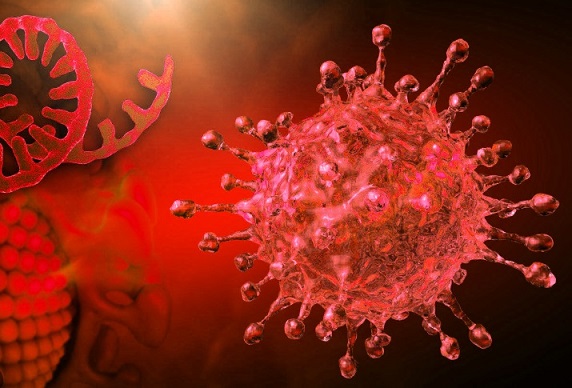New Super Mutations in COVID-19 Main Protease Threaten Effectiveness of Existing Antiviral Drugs
Nikhil Prasad Fact checked by:Thailand Medical News Team Jun 03, 2025 8 months, 3 weeks, 1 day, 3 hours, 37 minutes ago
Medical News: As the world continues to grapple with SARS-CoV-2, a new study has uncovered worrying insights into how specific viral mutations are rendering key COVID-19 drugs less effective. Researchers from the University of Minnesota and the University of Texas Health San Antonio have discovered that mutations at a single site on the virus’s main protease enzyme—known as Mpro—can significantly reduce the potency of several frontline antiviral drugs, including nirmatrelvir (the active compound in Paxlovid), ensitrelvir, and bofutrelvir.
 New Super Mutations in COVID-19 Main Protease Threaten Effectiveness of Existing Antiviral Drugs
New Super Mutations in COVID-19 Main Protease Threaten Effectiveness of Existing Antiviral Drugs
The study focused particularly on mutations at position 166 of the Mpro enzyme, where the glutamic acid (E) can be replaced by other amino acids like valine (V), isoleucine (I), alanine (A), or leucine (L). This
Medical News report highlights that one particular mutation, E166V, leads to a dramatic resistance to nirmatrelvir—one of the most commonly prescribed COVID-19 treatments. The mutation creates both structural and chemical changes in the enzyme, making it harder for the drug to bind effectively and shut down viral replication.
Why E166 Mutations Matter So Much
The Mpro enzyme is crucial to the virus’s ability to multiply inside the body. It performs a necessary function by cleaving long protein chains into usable pieces that the virus needs to replicate. Antiviral drugs like nirmatrelvir work by binding to this enzyme and blocking its activity. However, when the virus develops the E166V mutation, the shape and properties of the enzyme's active site are altered. Specifically, the mutation causes the loss of a key hydrogen bond and introduces a bulky valine side chain that causes a steric clash with nirmatrelvir.
The research team used a mix of high-resolution X-ray crystallography and biochemical analysis to study how different drugs interacted with both the original and mutated versions of the enzyme. They discovered that while nirmatrelvir was strongly affected by the E166V and E166I mutations, bofutrelvir was far more adaptable and maintained its binding ability due to its flexible structure.
How the Study Was Conducted
The scientists created several mutant versions of the Mpro enzyme and tested them against the three drugs. They introduced additional mutations like T21I, L50F, and S144A to mimic potential viral adaptations seen in nature. Crystals of these enzymes were formed and their structures analyzed in detail. Furthermore, the team performed enzyme activity tests and measured how effectively the drugs could inhibit the enzymes.
One of the key findings was that the E166V mutation alone increased resistance to nirmatrelvir by more than 300 times compared to the original virus, and when combined with other mutations, resistance became even stronger. Ensitrelvir showed moderate resistance development, and bofutrelvir exhibited the least loss of effectiveness, suggesting it could be a valuable fallback option.
&nb
sp;
Thermal Stability and Drug Binding Affinity
Using thermal shift assays, the study also revealed that the E166V mutation reduced the binding affinity of nirmatrelvir significantly, with only a minimal temperature shift (ΔTm of 2°C) compared to a 18.5°C shift in the wild-type. Ensitrelvir and bofutrelvir showed moderate and strong binding respectively, further confirming the structural observations.
Interestingly, while E166V disrupted key interactions in the enzyme, it also reduced the enzyme’s own activity, potentially weakening the virus. But compensatory mutations like T21I and L50F can restore this lost activity, allowing the resistant virus to spread efficiently.
What This Means for the Future of COVID-19 Treatment
This research sends an urgent message to scientists and pharmaceutical developers. The virus is evolving in ways that could undermine some of our most powerful therapeutic tools. It’s no longer sufficient to focus on one drug or one target. Instead, we need a diversified antiviral arsenal with drugs that are less vulnerable to resistance and more capable of adapting to viral changes.
The findings suggest that future drug design should consider reducing bulky components like the tert-butyl group found in nirmatrelvir, which contributes to resistance when facing the E166V mutation. Drugs like bofutrelvir, with their flexible binding behavior, could serve as models for next-generation antivirals.
In conclusion, the E166 mutations in SARS-CoV-2’s main protease represent a serious concern for current antiviral treatments. The ability of the virus to develop resistance through just a single mutation—and to restore its lost fitness with additional mutations—highlights the need for continuous surveillance and rapid development of new therapies. As COVID-19 continues to evolve, our treatments must evolve faster.
The study findings were published in the peer reviewed journal: mBio.
https://journals.asm.org/doi/10.1128/mbio.02624-24
For the latest COVID-19 News, keep on logging to Thailand
Medical News.
Read Also:
https://www.thailandmedical.news/news/drug-resistance-mutations-emerging-in-sars-cov-2-after-ensitrelvir-use-in-japan-to-treat-covid-19
https://www.thailandmedical.news/news/hyperactive-mutations-in-sars-cov-2-mpro-contribute-to-antiviral-drug-resistance
https://www.thailandmedical.news/news/covid-19-news-sars-cov-2-develops-mutations-that-causes-resistance-to-any-antivirals-used-in-japan-use-of-ensitrelvir-resulted-in-m49l-mutants
https://www.thailandmedical.news/articles/coronavirus
https://www.thailandmedical.news/pages/thailand_doctors_listings
